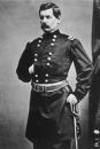Ken Burns Documentary War and World War II
Have you been watching Ken Burns documentary War on public television? He’s done a great job of making the program interesting as well as informative and it’s a pleasure not to have to endure  commercials. How horrible war really is and how real World War II was to me even though I was child. We lived through World War II. I remember the Sunday when Pearl Harbor was bombed and what I was doing. I was six years old and tough times had forced us to move out of the house my parents were buying because they couldn’t afford the mortgage payments any longer so they had rented it to the manager of a local mill. We were living in a rental house across the street from the city park and Catholic church in Anacortes when Pearl Harbor happened.
commercials. How horrible war really is and how real World War II was to me even though I was child. We lived through World War II. I remember the Sunday when Pearl Harbor was bombed and what I was doing. I was six years old and tough times had forced us to move out of the house my parents were buying because they couldn’t afford the mortgage payments any longer so they had rented it to the manager of a local mill. We were living in a rental house across the street from the city park and Catholic church in Anacortes when Pearl Harbor happened.
I still remember the newsreels at the theater about the war throughout the war. I recall how everyone was involved in the war effort. Price regulations and rationing were in effect and that impacted our small family grocery store. Gas rationing was a problem for everyone as well. Movies featured war movies and many were mostly propaganda. We looked for spies who might have infiltrated our town and fox holes were dug along the shore line of Anacortes. Gun installations were constructed and we were warned of a possible attack by Japan.
It turns out that we weren’t totally paranoid. A Japanese submarine shelled Fort Stevens near Astoria in 1942. By 1944  balloons launched from Japan and carrying incendiary bombs began to drift East on the jet stream to the U.S. Japan launched over 9,000 balloons, some of which were 100 feet in circumference. One landed in Wyoming and over the next several months following this, there were over three hundred similar explosions or landings in Western United States and Canada. Oregon counted 45 incidents alone. So we were on alert throughout the war.
balloons launched from Japan and carrying incendiary bombs began to drift East on the jet stream to the U.S. Japan launched over 9,000 balloons, some of which were 100 feet in circumference. One landed in Wyoming and over the next several months following this, there were over three hundred similar explosions or landings in Western United States and Canada. Oregon counted 45 incidents alone. So we were on alert throughout the war.
This week, in watching the program, I was interested in the portion of the documentary dealing with Anzio, a battle that began in January of 1944. Having invaded Sicily, the allies were moving toward Rome, but were stopped at Monte Cassino. In what became The Battle of Monte Cassino, we were stalemated. Based upon incorrect information the German’s were using the monastery as an observation post, we destroyed it by bombing the great abbey of Monte Cassino in February of 1944. St. Benedict had created  the abbey about 529 and it was the birthplace of the Benedictine order. After he war the government of Italy rebuilt it, but many irreplaceable things were destroyed.
the abbey about 529 and it was the birthplace of the Benedictine order. After he war the government of Italy rebuilt it, but many irreplaceable things were destroyed.
In an effort to break the stalemate which prevented the allies from advancing, General John P. Lucas was selected to go around by sea and invade from the back side by landing troops at Anzio. Thhe landing of troops was successfully done and surprised the Germans, but Lucas, instead of capitalizing on the advantage, took over a week establishing a beachhead instead of taking advantage of the surprise and lack of preparation on the part of the German’s. When he did attack they were, by then, fully prepared and drove the allies back. Lucas was relieved of command and while we were eventually successful, it was only after massive loses. Lucas was criticized not only for his leadership and tactical errors, but for never visiting the front line. He stayed in an underground bunker throughout the battle. Churchill, who had conceived of the plan to invade by sea at Anzio commented about Lucas: "I had hoped were hurling a w ildcat into the shore, but all we got was stranded whale."
ildcat into the shore, but all we got was stranded whale."
Lincoln had a similar problem with General George McClellan during the Civil war. McClellan had to be relieved because of his reluctance to take the initiative and his careful preparation before advancing which resulted in failure after failure. Lincoln’s famous line about McClellan’s reluctance to attack was: "If General McClellan does not want to use the army, I would like to borrow it for a time." 
One would believe that if General George S. Patton had led the attack at Anzio the outcome would have been much different. Patton, one of the colorful American military leaders of the 20th century, was noted for the speed with which he advanced. He used to say: "A good plan, violently executed now, is better than a perfect plan next week."
The documentary brings back how awful war is and what a waste it is of young men. It makes one realize the same thing about Iraq.
